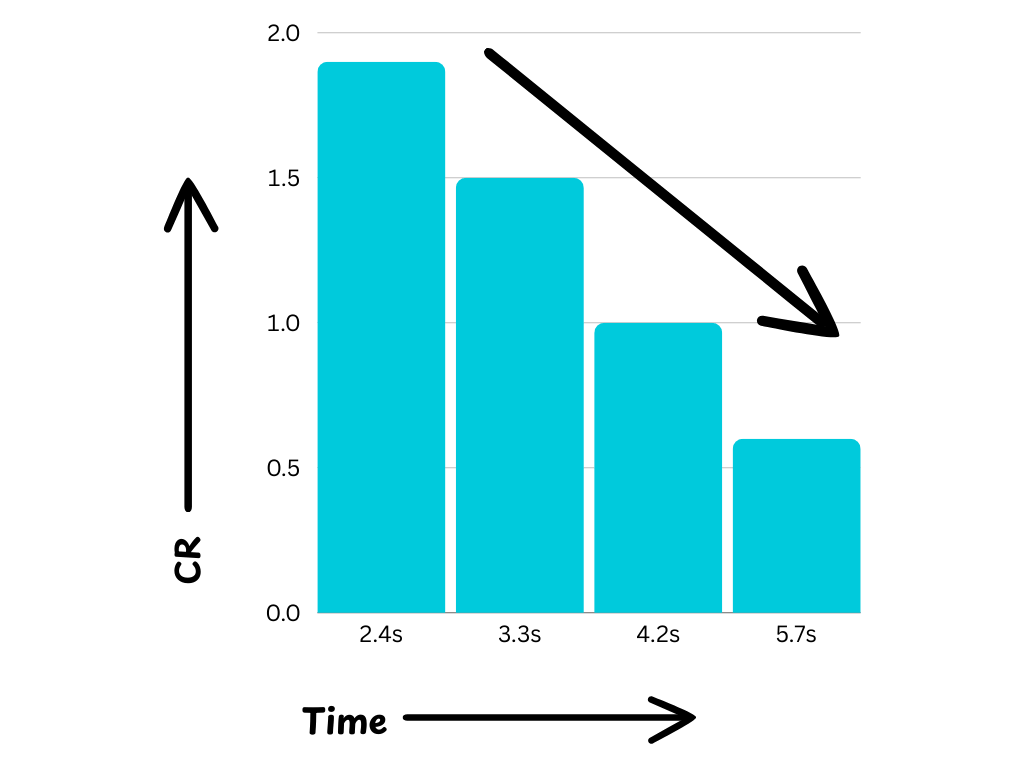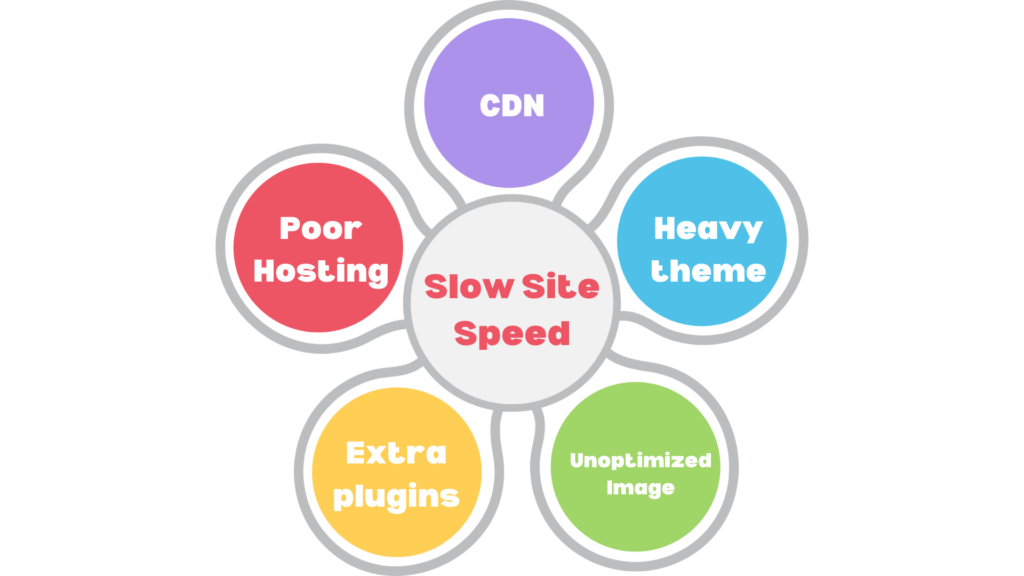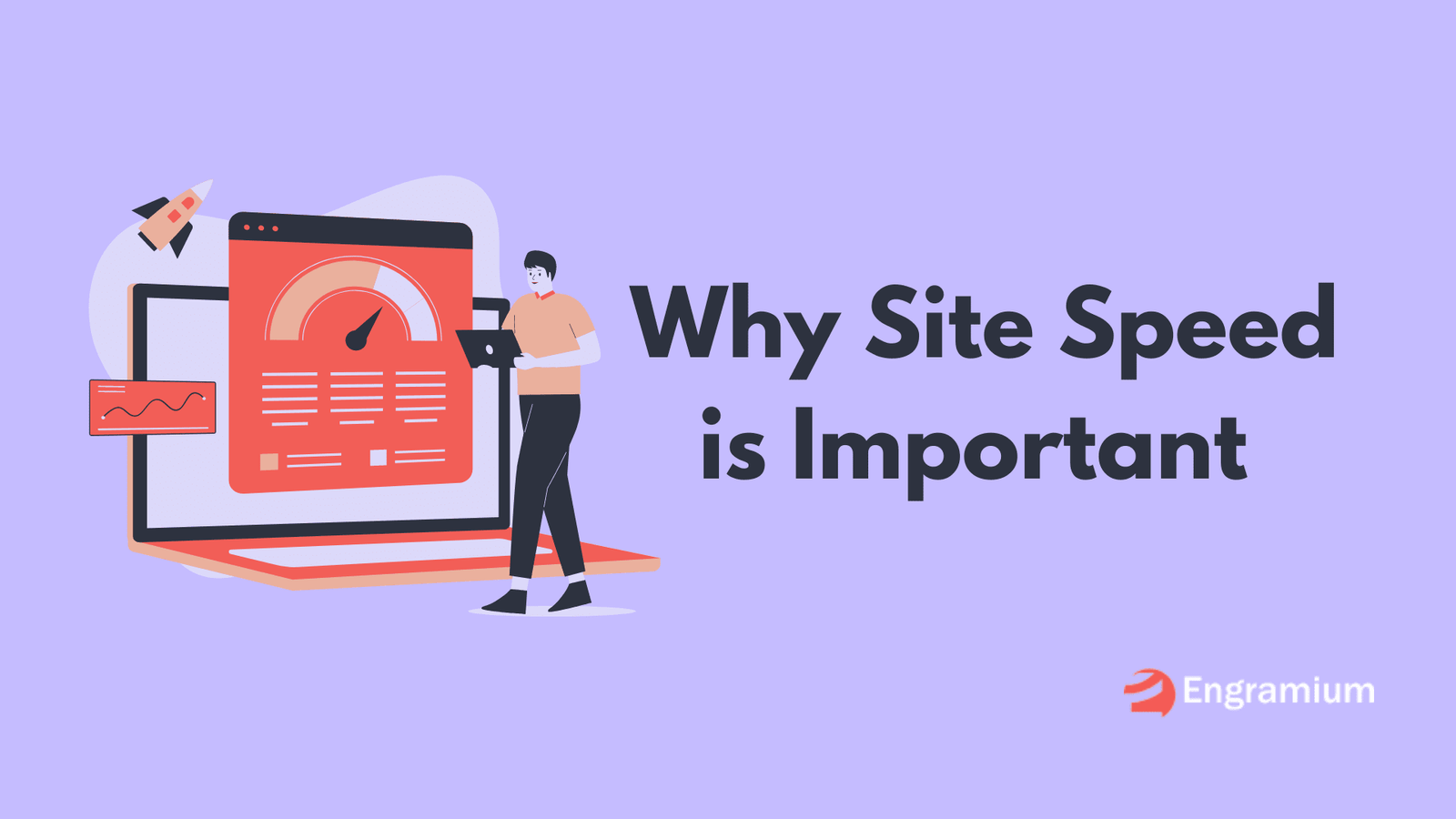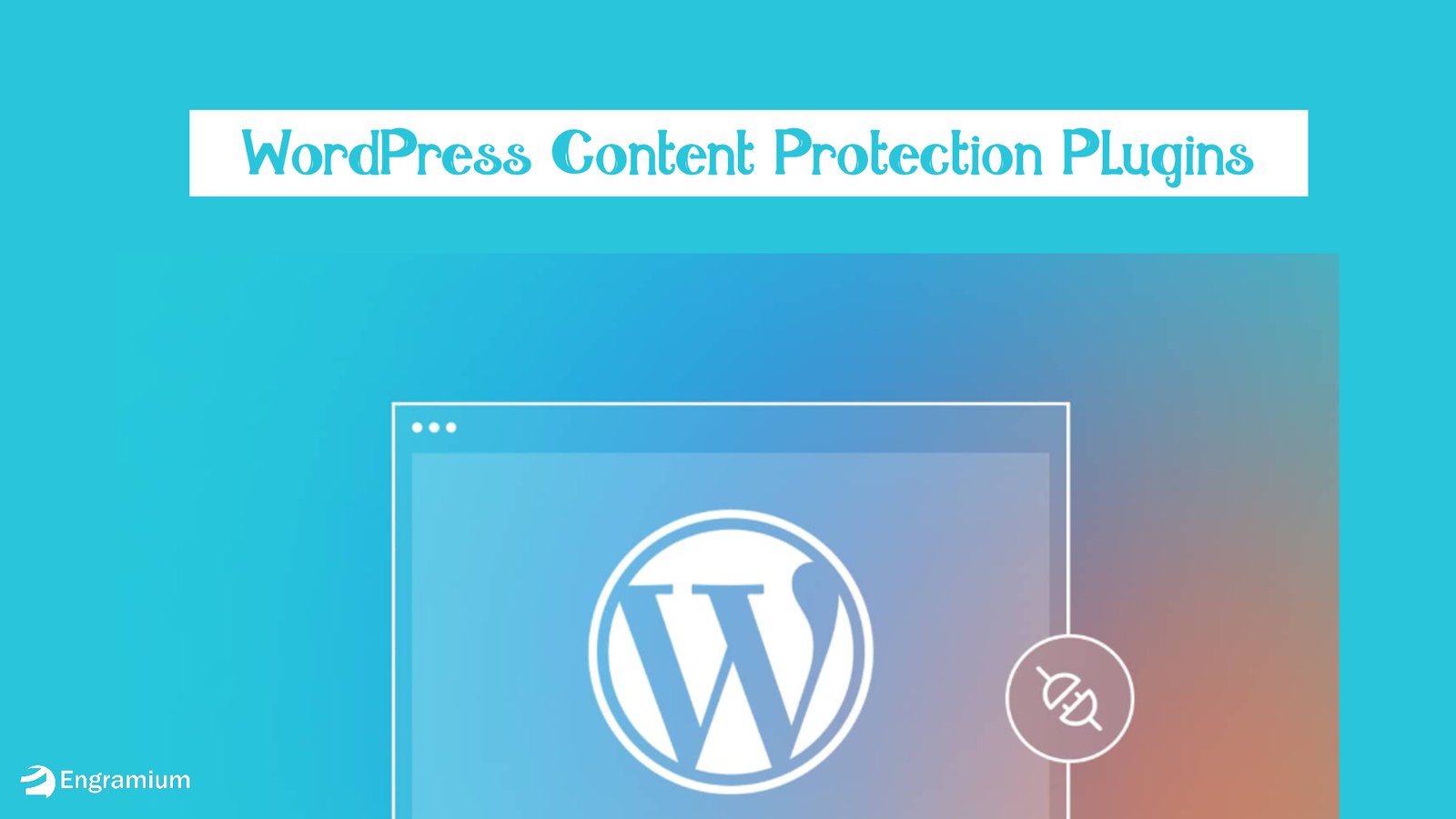Have you ever visited a website that took forever to load? You probably didn’t wait for it and clicked away, right? That’s because we all expect websites to load quickly. Nowadays, site speed is more important than ever.
For businesses, a slow website can mean losing potential customers. Studies show that people are more likely to leave a site if it doesn’t load in just a few seconds. This can lead to fewer sales, less engagement, and even a drop in search rankings.
So, why is site speed important for your business?
In this blog post, we’ll explain why having a fast website is crucial for success and how it can impact your business growth. Let’s dive in!
What is site speed?
Site speed is the measure of how fast your website loads when a visitor visits it. It’s the time it takes for all the content on your site, like text, images, and videos, to appear on the screen.
Imagine two websites, Website A and Website B. Both sites offer the same type of content.
When a visitor clicks on the link to Website A, it takes only 2 seconds for the homepage to fully load, with all images, text, and other content. Search engines will mark it as a fast website.
When a visitor clicks on Website B, it takes 8 seconds for the page to load. During this time, only a portion of the content is visible, and the rest of the page keeps loading slowly. Which impacts sales, user experience, and revenue.
In this case, Website A has a better site speed, which will likely lead to more user engagement and higher rankings in search engines, while Website B may lose visitors due to its slower speed.
Ideal loading time for a website to load
Loading time has an impact on search engine ranking. Google always ranks the fast-loading pages or websites. According to Google, a 0 to 3.4 seconds loading time is ideal for a website. Here is the full chart of website loading time and categories.
| Speed Time | Comment |
| 0 – 3.4 | Fast |
| 3.4 – 5.8 | Need Improvement |
| More than 5.8 | Slow |
Why is site speed important for your business?
Site speed is important because it directly affects how users experience your website. A fast-loading site keeps visitors engaged and encourages them to stay longer, explore more pages, and potentially make a purchase or take another desired action.
On the other hand, a slow site can lead to frustration, causing visitors to leave quickly and possibly not return.
In addition to user experience, site speed also impacts your website’s search engine ranking. Search engines like Google prioritize faster websites in their search results, meaning that a quicker site can help you reach more people.
Here we have pointed out a few reasons why site speed is important for your business:
- Decreases sales
- Ruin customer experience
- Decrease Mobile Shopping
- Complicated Checkout Process
- Lose Customer Trust
- Decrease Customer Retention
- Ruin Ad Performance
- Increase Operational Costs
Now let’s get into the details!
01. Decreases sales
Site speed is directly linked to sales in eCommerce. A faster website keeps visitors on your site longer, making it more likely they’ll complete a purchase. When pages load quickly, customers can easily browse products, add items to their cart, and check out without frustration. Every second counts, and a speedy site can significantly increase your conversion rates and overall sales.
For example, recently world’s of online e-commerce brand Walmart published a statistics that the conversion rate increased by 2% if the website loading time decreased by 1 second.

02. Ruin customer experience
A fast website enhances the overall experience for your customers. When your site loads quickly, users can find what they’re looking for without delay, making their shopping experience enjoyable and hassle-free. This positive experience not only encourages them to complete purchases but also makes them more likely to return in the future.
3. Decrease mobile shopping
With more people shopping on their mobile devices, site speed is even more critical. Mobile users expect quick and responsive websites and a slow site can lead to high bounce rates. By ensuring your site loads quickly on mobile, you cater to the growing number of mobile shoppers, which can lead to increased sales and customer satisfaction.
4. Complicated checkout process
A fast site ensures that the checkout process is smooth and efficient, reducing the chances of cart abandonment. If customers experience delays during checkout, they may get frustrated and leave without completing their purchase. A fast, seamless checkout process helps ensure that more customers finalize their transactions.
5. Lose customer trust
A fast and reliable website builds trust with your customers. When your site loads quickly and operates smoothly, it gives the impression that your business is professional and trustworthy. And a slow site can make customers doubt the reliability of your business.
6. Decrease customer retention
Site speed plays a key role in retaining customers. If visitors have a positive experience with a fast website, they’re more likely to return for future purchases. Repeat customers are valuable for any business, and a speedy site can help build loyalty and encourage long-term customer relationships.
7. Ruin ad performance
Faster websites also improve the performance of your online advertising efforts. When users click on your ads, they expect a quick and seamless transition to your site. A slow-loading site can lead to higher bounce rates and wasted ad spend. By optimizing site speed, you can get more value from your advertising budget and convert more clicks into sales.
8. Increase operational costs
Maintaining a fast website can also help reduce operational costs. Faster sites typically have better server efficiency and require fewer resources to handle traffic. This can lead to lower hosting costs and reduced strain on your IT infrastructure, ultimately saving your business money.
Based on the above 8 points, site speed is a critical factor that can significantly impact the success of your business or eCommerce platform. A fast website not only enhances the user experience but also boosts sales, improves search engine rankings, and increases customer retention.
What affects a website’s speed
Site speed never depends on a single factor. For example, a website may slow for poor hosting, others may slow for the heavy theme. As a result, it is important to know all potential factors that can harm your website speed.

Here we have mentioned 5 points and most of the time site is slow due to those things. If you solve those problems, your site speed will increase by more than fifty percent.
- Poor hosting
- Content Delivery Network (CDN)
- Heavy theme
- Unoptimized images
- Extra plugins
Without wasting any time, let’s discuss it in detail.
1. Poor hosting
Be careful before pursuing any hosting plan. There are my types of hosting plans and every plan is suitable for different websites. For example, blogging and e-commerce website hosting are not the same. That is why choose a hosting plan wisely.
2. Content Delivery Network (CDN)
Without CDN, it took more time to load the website. Simply, by connecting a website with a CDN provider, all your website’s data is distributed to different servers across the world. When someone visits your site, the data will delivered from the nearest server. As a result, it saves time and decreases loading time.
3. Heavy theme
Unnecessary features and extra codes make a theme heavy. It makes a website lazy. Even if the theme is written using an old version of code, it makes the theme slow. It is necessary to remove unnecessary features, write the code with the latest version of the code, and organize them.
4. Unoptimized images
An unoptimized image means the size of the image is unusual; the format is not right. That kind of image is a cause of slow websites. It makes the website heavy, needs time to load, and makes the site slow.
5. Extra plugins
Plugins help run a WordPress website. But using too many plugins affects your website badly. Always try to use only the necessary plugins. Or use plugins that offer many features at a time, like Optimator.

Here we only mentioned 5 points. But many other factors are here that make a site lazy. If you don’t know how to improve website speed, then ‘The best way to speed up WordPress website’ is a must for you.
Conclusion
Nowadays, where customer expectations are higher than ever, ensuring your site loads quickly is essential for building trust, maintaining customer loyalty, and maximizing the effectiveness of your marketing efforts.
By prioritizing site speed, you position your business for long-term success and ensure that you’re meeting your customers’ needs efficiently and effectively.
Do you want to speed up your WordPress website? We have a blog on speeding up WordPress sites where we have explained 14 proven ways to increase site speed. Check it out to make your site blazing fast.




Leave a Reply